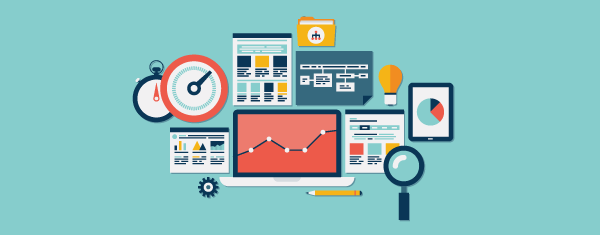EVERYTHING YOU OUGHT TO KNOW ABOUT SOCIAL MEDIA ANALYTICS
- motishaonlinemarke
- Jan 7, 2022
- 3 min read
By Imeru Wambui

We will explore the following topics about social media analytics that will help you improve your analytics skill and knowledge resulting to you making informed decisions on how to approach your social media goals or objectives.
The topics will include
What is social media analytics
Importance of social media analytics
How to create a social media analytics strategy
Key performance indicators to follow, track and measure
WHAT IS SOCIAL MEDIA ANALYTICS
Social media analytics is the process of gathering and analyzing data from social networks such as Facebook, Instagram, LinkedIn and Twitter. Wikipedia
Social media analytics (SMA) refers to the approach of collecting data from social media sites and blogs and evaluating that data to make business or brand decisions.
Social media analytics is a collection of data unearthed via multiple techniques from multiple sources
IMPORTANCE OF SOCIAL MEDIA ANALYTICS
Social media analytics is the method of collecting data from social media websites about a certain brand, product or service, and analyzing the data to make better, more informed business decisions
Every major platform has analytics that you can use to understand your audience and the performance of your social media posts.
There is a large amount of information to be found in the social media data collected through analytics
Insights derived from these analyses are often used to judge sentiments around a certain brand or product and better advice marketing strategies
Without social media analytics however, social media presents a guessing game in an ever-changing slog of information without cohesive insight. It has become a treasure trove of consumer insights you can’t find anywhere.
The ability to cut through the online noise in pursuit of actionable markets, competitive and consumer intelligence, coupled with consistent monitoring to track conversational fluctuations over time is the mark of effective social media analytics.

BENEFITS OF SOCIAL MEDIA ANALYTICS
Analyzing social media will help you achieve the following,
1.Understand the effectiveness of your social media efforts and adjust what isn’t working.
2.Develop new benchmarks and Key Performance Indicators or KPIs
3.Determine the best mix of content on the right channels at the right times
4.Identify opportunities to better engage with customers
5.Adjust budgets and calculate ROI
6.Identify how you need to make resource changes to boost social media efforts
7.Allows companies to gather information about how the public views their brand in a truly honest, reliable setting businesses can get the most accurate picture of how the public perceives their brand, products and services
8.Analytics provide tools that evaluate user demographics like location, age, gender and time of activity
9.Provide metrics that offer better insight as to how each post is performing, beyond counting likes and comments analytics go much deeper than simply tallying data.
CREATING A SOCIAL MEDIA ANALYTICS STRATEGY
Step in creating a social media analytics strategy is to
1. Determine what a brand’s particular goals are
2. Setting goals will help you determine which data is important and which data is superfluous.

TYPES OF DATA TO TRACK
Followers: It can be extremely helpful to know who is following your brand, what other brands they follow, who their followers are and what their overall interests are
Impressions and reach: Impressions refer to the number of times your content is seen. These metrics can be especially helpful for measuring brand awareness.
Engagement: Engagement encompasses every interaction on each post — comments., likes, mentions and shares. This measurement helps determine which users are simply seeing your content and which are interacting with it
Sentiment: Sentiment analysis takes things a step further in evaluating not only who is interacting with your content, but how they are interacting and how they feel about your brand or business.
Competition: A competitive analysis can be vital for brands and businesses that want to ensure they are keeping up with the rest of the industry. It’s important to know what other brands are doing and how well they’re performing. It can also provide ideas as to what kinds of marketing efforts are working for others and what kinds aren’t.

KEY PERFORMANCE INDICATORS/KPIS
KPIs are measurable values that show you how effective you are at achieving business objectives.
A good KPI should act as a compass, helping you and your team understand whether you’re taking the right path toward your strategic goals
Key performance indicators must have the following
Targets
Specific timeframes for achieving targets
Be relevant to business or brand outcomes.
KEY PERFORMANCE INDICATORS TO MEASURE
Analyzing your business’s social media presence and success is a vital component to successful social media marketing. The actual KPIs that you can measure will vary by social media platform
They include the following KPIs to measure
Links
Clicks
Likes
Shares
Comments
Brand mentions
Active followers
Profile visits
KEY PERFORMANCE INDICATORS TIPS
KPIs are revisited every 6 to 12 months.
KPIs such as reach, engagement, traffic, sentiment and competitive benchmarking, all play a significant role in determining the effectiveness of a campaign.








Comments